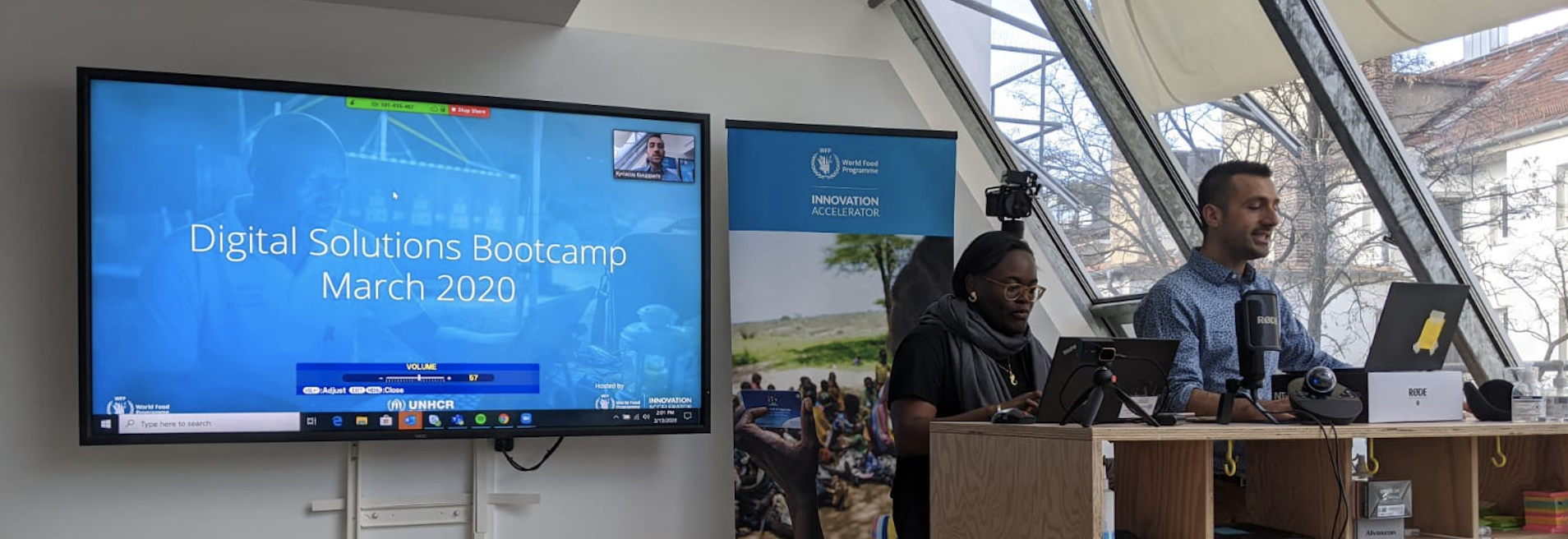Amid Coronavirus (COVID-19) concerns, the World Food Programme (WFP) and United Nations Refugee Agency (UNHCR) collaborated this month to deliver our first-ever virtual innovation bootcamp.
The United Nations Digital Solutions Bootcamp was organized to support United Nations teams creating digital solutions to address common operational challenges. Planning began in December 2019 for the bootcamp to be hosted by the WFP Innovation Accelerator in Munich, Germany.
One week before the bootcamp was scheduled to take place, it became clear that the COVID-19 outbreak was spreading globally, disrupting travel and events. When faced by an operational challenge, WFP and UNHCR embraced a digital solution — a virtual innovation bootcamp.
“The health and safety of our participants was our top priority. We quickly made the call to take the bootcamp virtual, and were excited to use the opportunity as a testing ground to pilot new ways of digital facilitation.”
Kyriacos Koupparis, Head of Frontier Innovations at the WFP Innovation Accelerator
Building off WFP Innovation Accelerator’s experience in delivering 25 bootcamps in Munich, San Francisco and Dar es Salaam, the physical bootcamp curriculum was adapted to be virtual instead, leveraging communications technology, video conferencing software and remote coworking solutions. Here are some key takeaways and lessons learned from the experience.
It’s all about the teams
Instead of gathering in Munich, five teams of innovators from around the globe came together virtually to dive into challenges, ideate solutions, and refine their project plans. With 25 team members calling in from Bangkok, Budapest, Cox’s Bazaar, Geneva and Rome, the participants’ enthusiasm and willingness to adapt to changing circumstances were crucial ingredients in the bootcamp’s success. Reliable video and audio equipment were also critical to ensuring participants felt connected and engaged.
“Faced by challenges, these teams successfully developed and presented their ideas, and we are keen to see how these will be taken forward. We would also like to give a special thanks to our WFP colleagues for partnering with us for this virtual experience, and to the organizing team who enthusiastically worked to support these new exciting projects.”
Kelly Clements, Deputy High Commissioner for Refugees of UNHCR
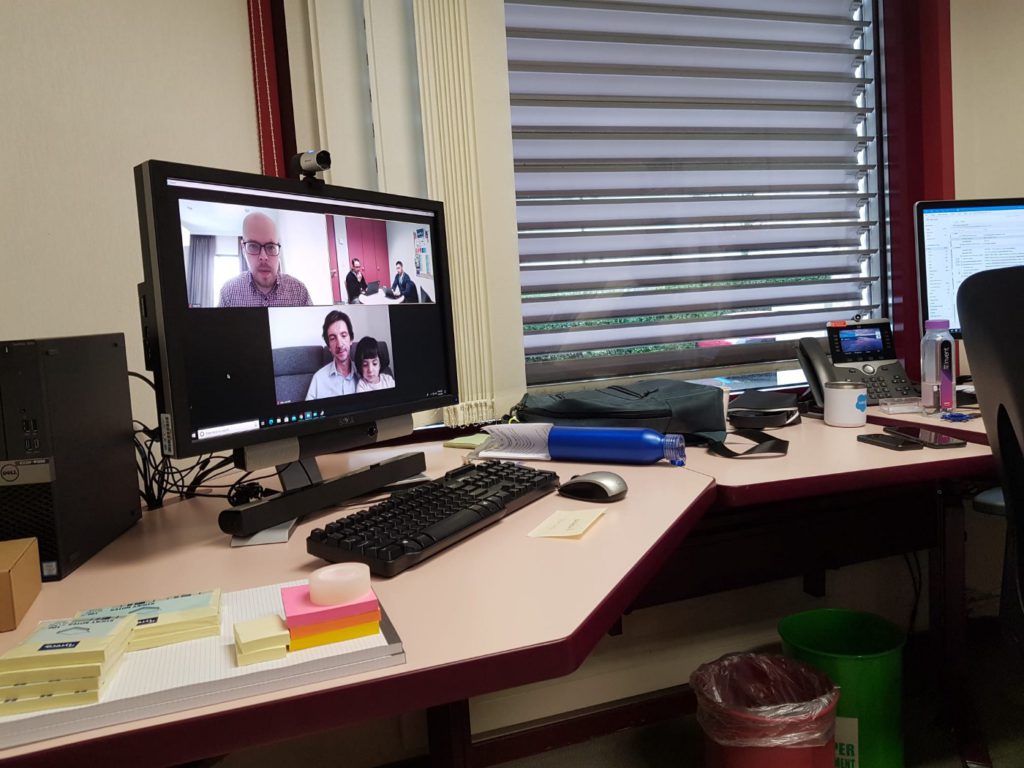
Keep the curriculum agile
Rethinking the logistics of the bootcamp also meant rethinking the curriculum. Instead of controlling everyone’s time, teams and facilitators were given ownership of their own schedules, allowing them to cater to their own circumstances. The social elements of the bootcamp were taken out and scheduled working hours were cut down to reduce the amount of time participants needed to spend staring at a screen. Instead, specific time was scheduled in the agenda for teams to interact with each other and exchange thoughts and ideas.
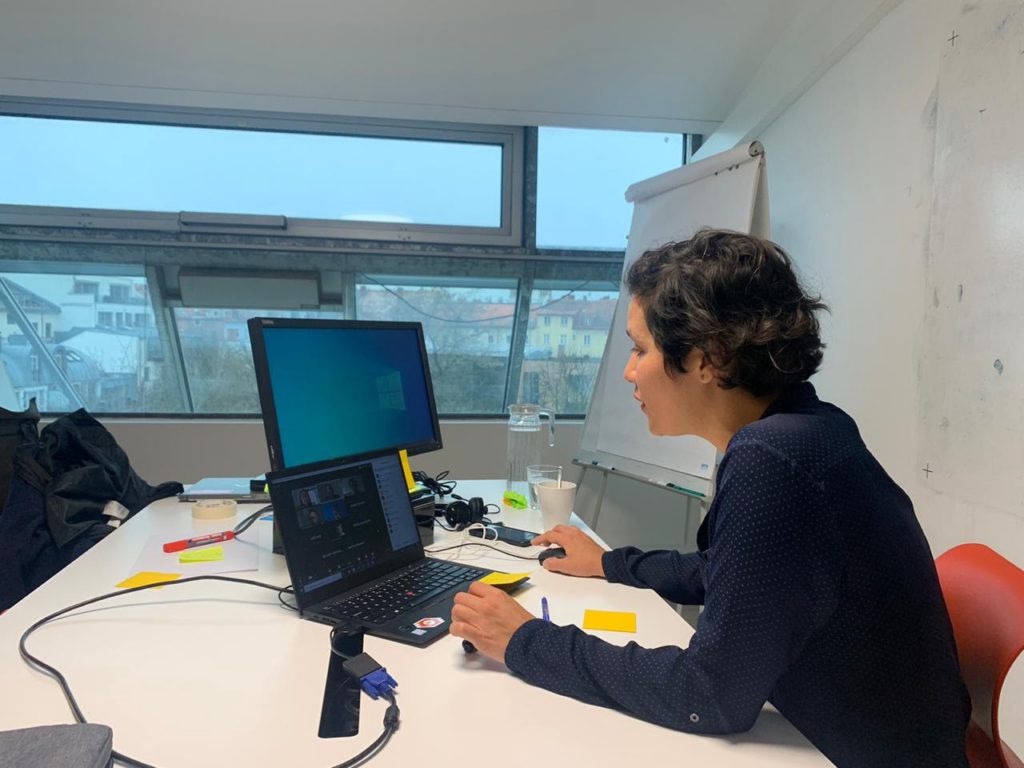
Assign clear roles and responsibilities
When coordinating between multiple global locations, clear roles and responsibilities are critical. Not only were the participants located around the world, the mentors were too — calling in from Geneva, Munich, New York, Tel Aviv and Vienna. The WFP Innovation Accelerator team in Munich acted as master of ceremonies and the control board, ensuring all participants were aligned on the day’s agenda and doing a daily Q&A. It was also important to clearly communicate to participants how to raise questions during each session.
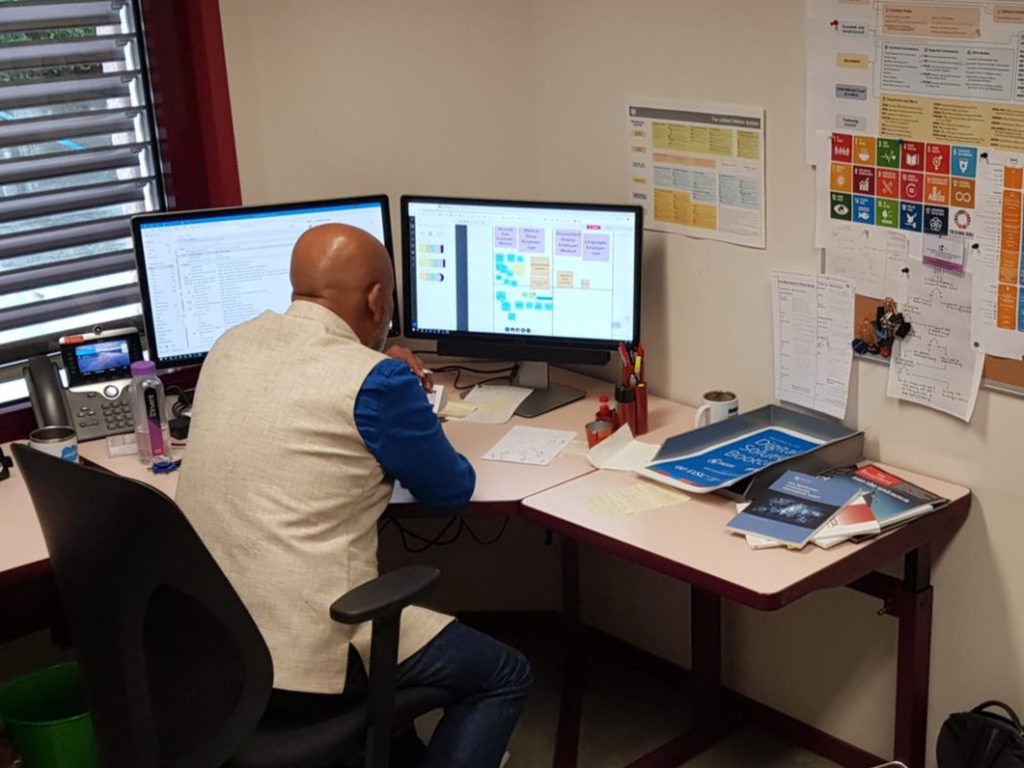
Leverage existing tech instead of introducing new products
Virtual events are technology-heavy and require a different skill set from organizers and participants than in-person events. Faced with a limited timeline, we leveraged technology that our participants were already comfortable with — Microsoft Teams, Zoom, Google Slides and WhatsApp — instead of introducing new products. We’ll continue exploring other technology solutions for future events, but easy-to-use tools will always be preferable to new ones that have steep learning curves.
“We are proud of the work these teams have done and their ability to adapt to changing circumstances,” said Manoj Juneja, Assistant Executive Director and Chief Financial Officer of WFP. “WFP and UNHCR showed how to leverage technology to get our work done and build a unique experience that will set a precedent.”
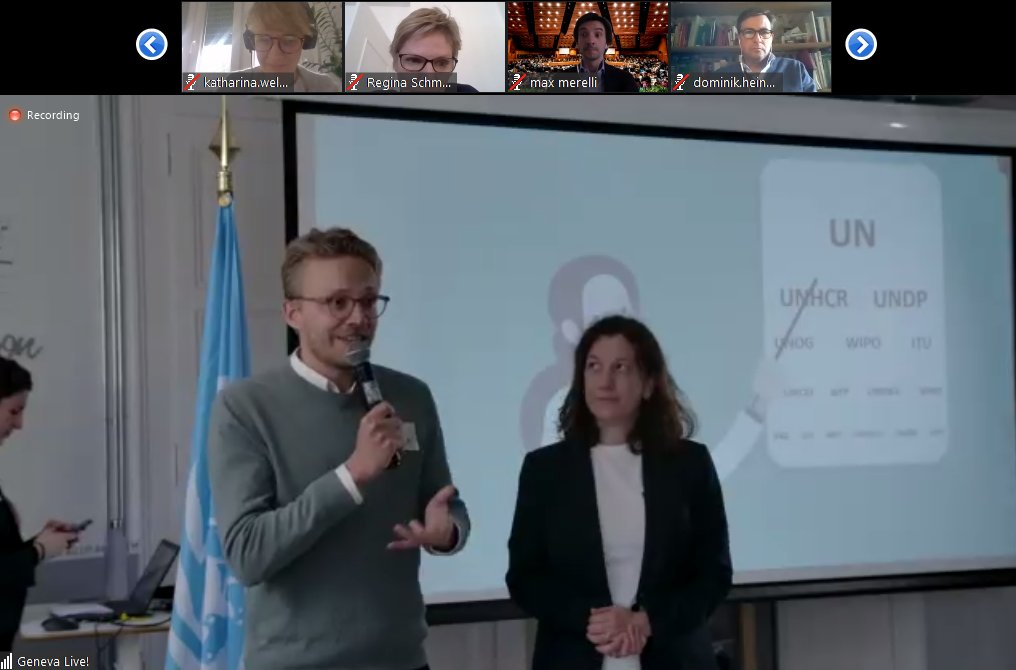
Virtual events can reach a global audience
At the end of the Bootcamp, the teams pitched their ideas virtually to an inter-agency panel. Participants were able to watch the teams pitch their solutions live and ask questions through a video chat. We learned that virtual events can reach an even wider audience than physical ones, as more than 120 people were connected to the pitch event, spanning several continents and time zones. We are grateful to have welcomed participants from 15 different UN agencies, as well as government funding partners such as USAID.
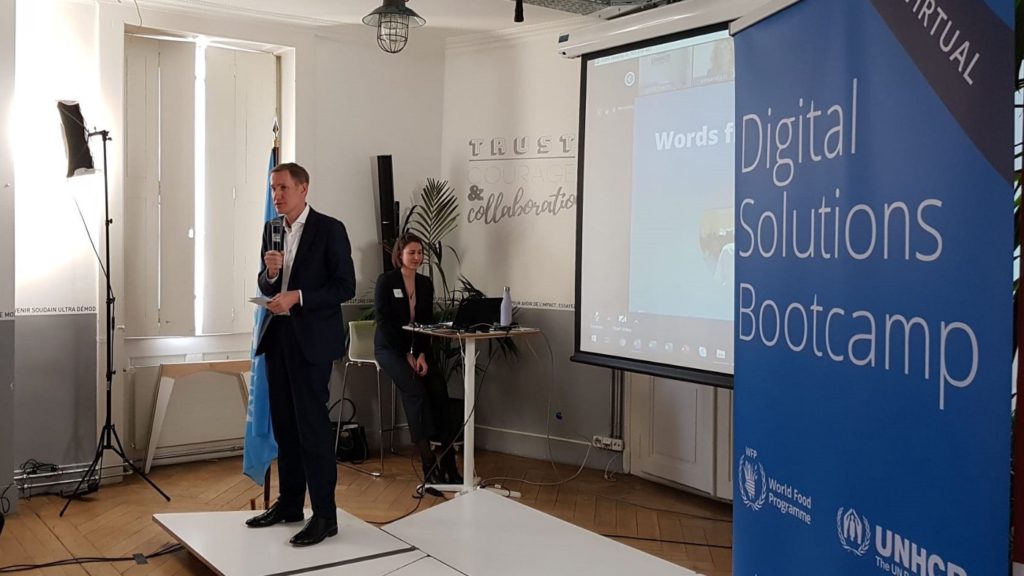
Nothing can perfectly replicate a face-to-face event — and that’s okay
Innovation bootcamps clearly benefit from in-person learning, networking, collaborating and socializing. Those experiences and other real-life activities are hard to replicate digitally. Working together in a new location also encourages participants to think more creatively and allows them to focus entirely on improving and refining their ideas, instead of being distracted by their day-to-day reality. However, we still learned to embrace the advantages that digital can provide: flexibility for changing circumstances, reduced travel costs, lower environmental impact, and the ability to reach a wider audience.
As WFP Executive Director David Beasley wrote recently, “while the virus has stopped us going to our workplace, it hasn’t stopped our work.” Faced by COVID-19, the WFP Innovation Accelerator is adapting and digitizing our operations, continuing to support UN agencies and WFP country offices in innovating to achieve Zero Hunger.
About the Digital Solutions Centre
The United Nations Digital Solutions Centre is operated in partnership by the World Food Programme (WFP), the UN High Commissioner for Refugees (UNHCR) and is supported by the International Computing Centre (UNICC).
By leveraging new technologies and UN expertise, the Digital Solutions Center aims to create a suite of digital solutions that can be shared among UN agencies to transform common business operations and streamline time-consuming transactional tasks. Solutions developed by WFP and UNHCR will be made available to the entire UN system

